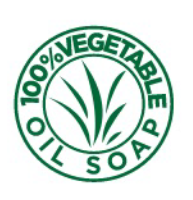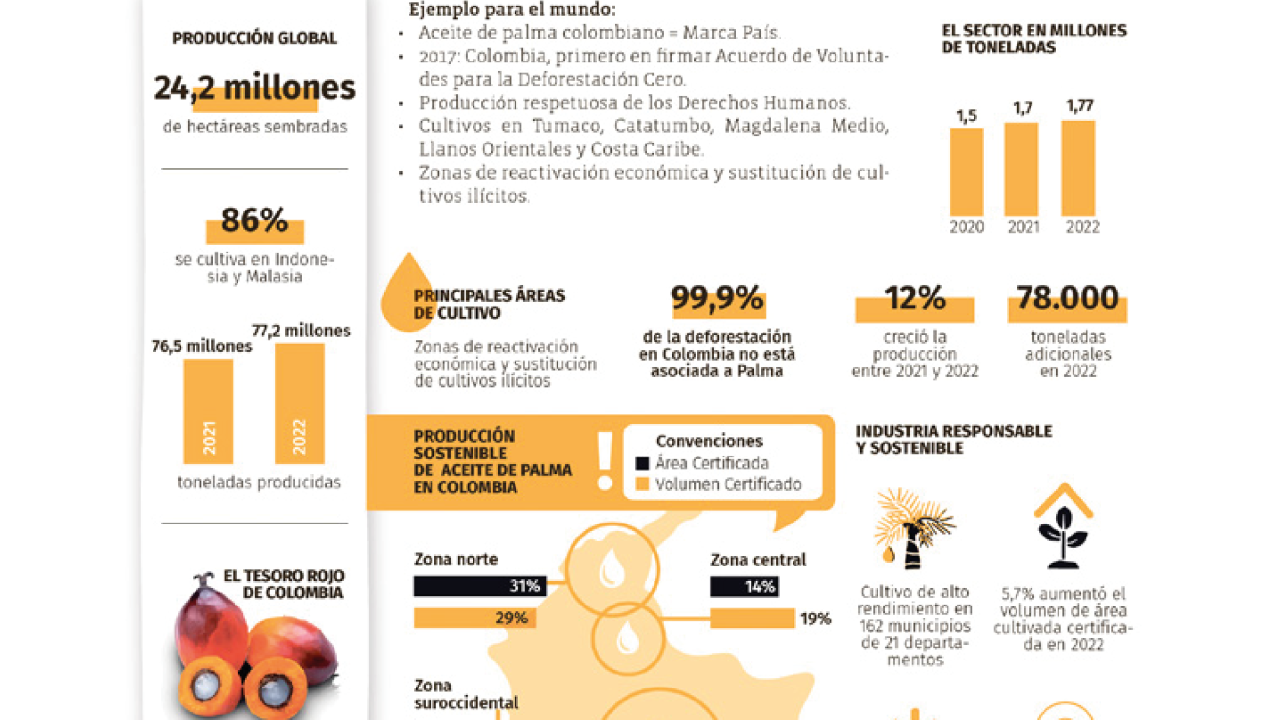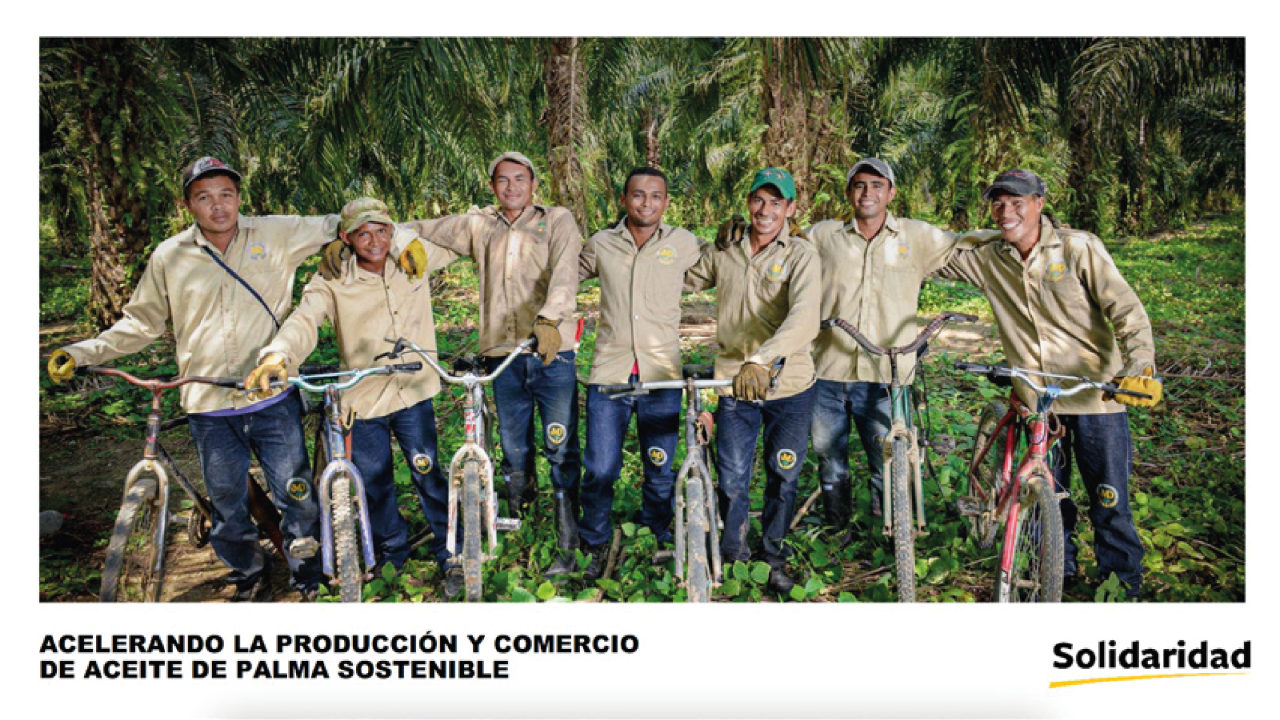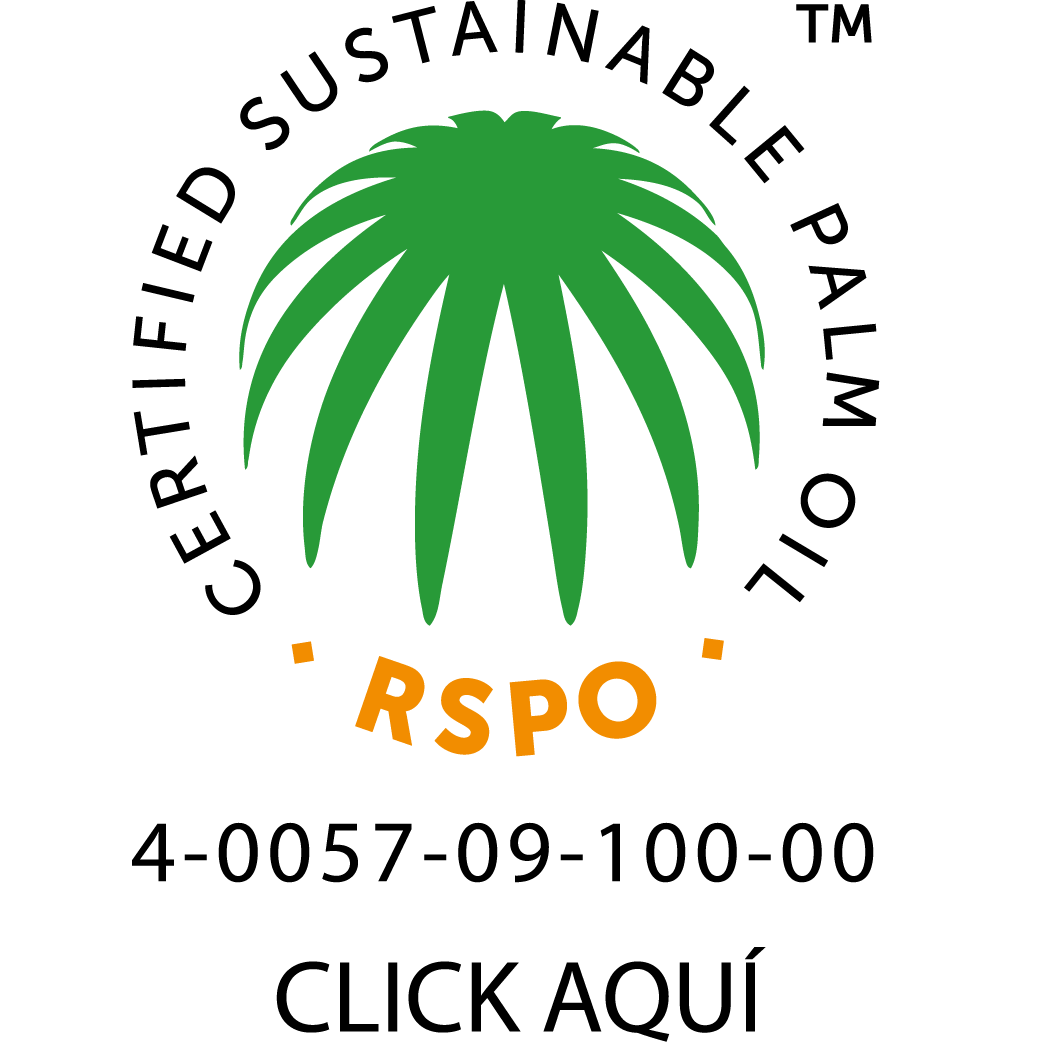About
Palm Oil
What is Palm Oil?
Palm oil is a vegetable oil extracted from the mesocarp of the fruit of the Elaeis guineensis tree, native from Africa.
It is the most widely used oil worldwide in mass consumption products and food products, due to its organoleptic properties, versatility and low cost. It has been used for more than 5000 years and today we can find it in different products, from lipsticks and soap to bakery, ice cream and supermarket products.
When consumed and used in moderation, palm oil has no harmful effects on health, as it behaves like many other vegetable oils.

What is the debate around its harvest?
In some regions, especially in Southeast Asia, palm oil cultivation has caused, and still causes, deforestation. Due to high global demand, virgin forests have been cleared for cultivation. This deforestation has wiped out flora and fauna, affecting biodiversity and the environment.
On the other hand, these irresponsible palm oil plantations have caused forced migration of communities and violation of workers' rights in rural communities.
Some organizations and growers have advocated the adoption of sustainable practices and plantations that do not replace natural forests and do not have negative effects on the environment and associated populations.

The palm oil used in our products, whether of Colombian or Latin American origin, comes from environmentally friendly crops. In our country, unlike many others, palm oil cultivation has also been a synonym for progress and development, replacing illicit crops and generating employment, quality of life and development in rural communities and areas of poverty.
Due to the bad practices of some palm oil growers, it is our priority to ensure that the palm oil used in the production of our products comes from sustainable sources. For this purpose, we are members of the RSPO - Roundtable on Sustainable Palm Oil, a non-profit organization that aims to unite all sectors of the palm oil industry and stakeholders: producers, distributors, manufacturers and social and environmental NGOs, which has created a sustainable oil certification system (CSPO) that establishes criteria and auditing systems and aims to guarantee production that promotes cleaner agricultural practices, respects labor rights, indigenous communities, the environment and does not threaten biodiversity.
We follow the Colombian palm oil movement and organizations such as FEDEPALMA ( National Federation of Palm Oil Growers), which brings together the Colombian palm oil sector and advocates for building a future based on the defense and promotion of the palm oil activity, fostering the development, progress and welfare of the country, its regions and communities.
Under the Supply Chain Standard - SCC Mass Balance, we contribute to the production of certified sustainable palm oil.
RSPO represents more than 5,000 member organizations worldwide, bringing together stakeholders from across the palm oil supply chain to develop and implement global standards for sustainable palm oil that has been responsibly grown, processed, distributed and sold under strict rules that protect animals, the environment and the people who live and work in oil palm producing countries.
It has involved:

Stop deforestation

Treating communities and workers fairly.

Protecting wildlife and the environment.

We are committed to the palm oil crops we source and pursue fair, inclusive, and sustainable value chains. We have created a strategic alliance with the international NGO Solidaridad, which works to support palm oil growers, improve their livelihoods, produce in greater harmony with the environment, and contribute to the prosperity of their communities.

Palm Oil, a sustainable fruit from Colombia for the world

Accelerating the production and trade of sustainable palm oil

